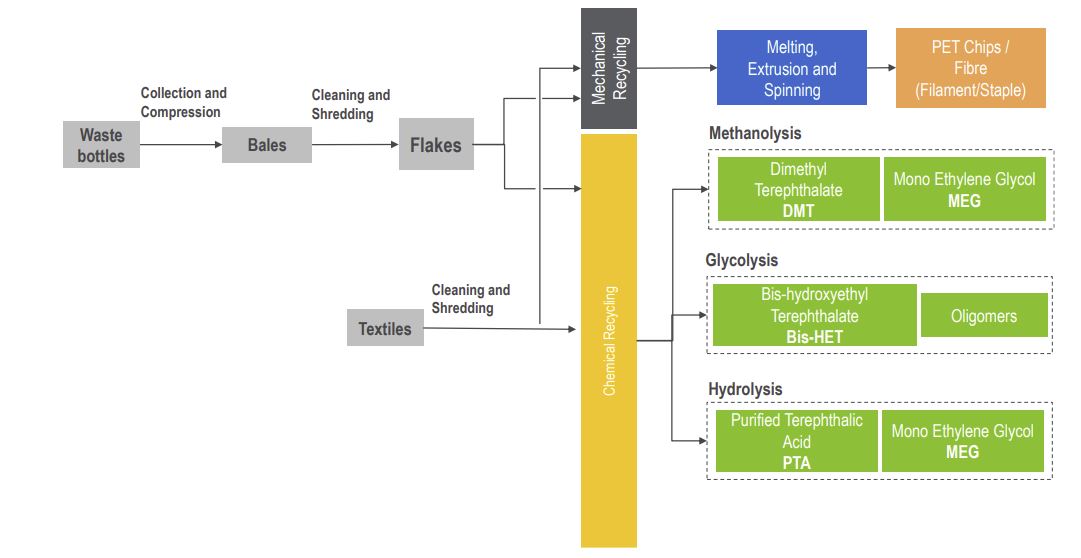New Analysis: Market Insights Recycled Polyester 2021
NexantECA, the Energy and Chemicals Advisory company publishes a new report on Recycled Polyester.
Recycling production and development of recycling technologies have been driven by economics and increasingly the sustainability agenda. On the global level, polyester is almost exclusively produced via the virgin process of PTA esterification. Recycling capacity accounts for a modest percentage, mostly via the mechanical method. The scale of chemical recycling process is rather limited to date.
Step changes in recycled polyester consumption are largely driven by legislation, followed by consumer pressure and brand owner response. The collection infrastructure, funding, governmental and societal backing remain the key success factors. Asia, the United States and Western Europe are the dominant global markets, however the consumption pattern varies markedly between bottle and fibre across these regions.
Consistent quality and availability of bottle flakes and textiles remain the challenge in the recycled polyester value chain. While bottle bales are generally commoditised in most markets, bottle flakes are differentiated by the level of purity and colour. Flake quality is a key consideration for recyclers as it dictates recycled polyester product quality and thus its potential applications.
NexantECA PET Recycling
Find out more...
Market Insights: Recycled Polyester - 2021 includes discussion regarding key market drivers and constraints, as well as demand analysis for nine regions: North America, South America, Western Europe, Central Europe, Eastern Europe, Middle East, Africa, Asia Pacific, and China. Analysis also includes the competitive landscape, capacity listing and cost competitiveness along with a snapshot of latest pricing trends by region and price forecasts to 2035.
NexantECA’s upcoming Market Insights report provides a comprehensive review of the global recycled polyester market, including supply by mechanical method and chemical processses (glycolysis and methanolysis/hydrolysis) and demand in bottle, fibre and others. The following scope is covered:
Discussion regarding key market drivers and constraints
Demand by end use - container resins and ‘fibre and strapping’ – for nine regions: North America, South America, Western Europe, Central Europe, Eastern Europe, Middle East, Africa, Asia Pacific, and China with forecasts to 2035
Mechanical recycle rate by region with forecasts to 2035
Competitiveness analysis, including competitive landscape, major suppliers and cost competitiveness
Price forecasts with commentary regarding latest trends
